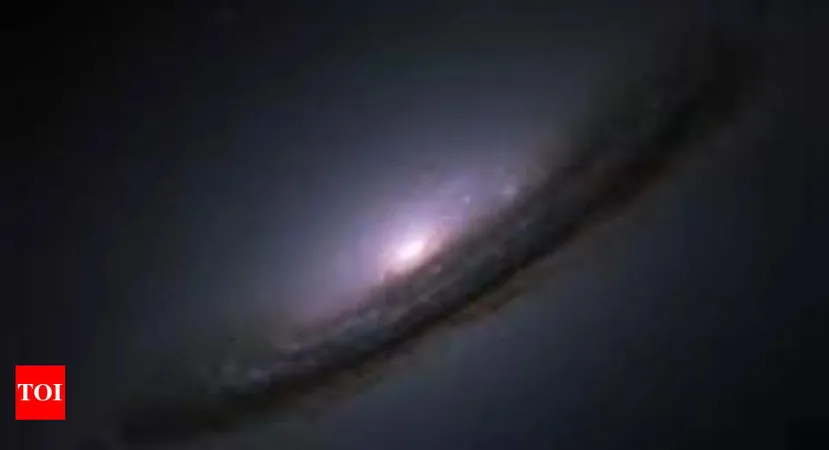
Scientists Claim Dark Energy Might Not Exist, Unraveling the Universe's Greatest Mysteries!
2024-12-24
Author: Daniel
Introduction
In a groundbreaking development, a group of scientists from the University of Canterbury is putting the long-held belief in dark energy under scrutiny. For years, dark energy has been postulated as the mysterious force responsible for the accelerated expansion of the universe. However, this new perspective argues that what we perceive as cosmic acceleration could be the result of uneven gravitational effects on the flow of time, leading to a potential paradigm shift in our understanding of the cosmos.
The Timescape Model
The emerging theory, known as the 'timescape' model, posits that the universe's expansion does not happen uniformly. Instead, it could be expanding in a 'lumpier' manner, with different regions of the universe expanding at varying rates. Researchers believe that this phenomenon stems from the effects of gravity on the passage of time. Essentially, time runs slower in stronger gravitational fields—like those found in galaxies—compared to the emptiness of cosmic voids. This time dilation could explain the perceived acceleration of the universe without invoking dark energy.
Professor Wiltshire's Insights
Professor David Wiltshire, the lead researcher, states, 'Our results indicate that dark energy is not required to explain the accelerating expansion of the universe.' This revelation could profoundly change how we comprehend not only the universe's structure but also the fundamental forces at play.
The Role of Dark Energy
Dark energy was thought to make up around 68% to 72% of the universe's total energy, outstripping both dark matter and visible matter. Despite being elusive and fundamentally undetectable, it became a cornerstone of cosmological theories. If the timescape model holds true, it could dismantle this long-standing mystery and potentially offer solutions to other enigmas, like the perplexing Hubble tension—the discrepancy between the measured rate of expansion of the universe and the rate predicted by cosmic microwave background observations.
Future Observations
As excitement builds in the scientific community, future observations from the Euclid satellite and NASA's Roman Space Telescope are eagerly awaited to confirm or challenge this revolutionary model. If successful, this theory could rewrite the textbooks on cosmology and change our understanding of the universe forever.
Conclusion
Stay tuned as we continue to follow this thrilling narrative that may redefine our place in the cosmos!


 Brasil (PT)
Brasil (PT)
 Canada (EN)
Canada (EN)
 Chile (ES)
Chile (ES)
 España (ES)
España (ES)
 France (FR)
France (FR)
 Hong Kong (EN)
Hong Kong (EN)
 Italia (IT)
Italia (IT)
 日本 (JA)
日本 (JA)
 Magyarország (HU)
Magyarország (HU)
 Norge (NO)
Norge (NO)
 Polska (PL)
Polska (PL)
 Schweiz (DE)
Schweiz (DE)
 Singapore (EN)
Singapore (EN)
 Sverige (SV)
Sverige (SV)
 Suomi (FI)
Suomi (FI)
 Türkiye (TR)
Türkiye (TR)